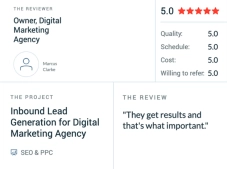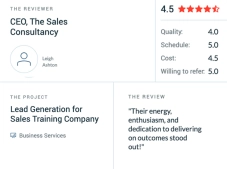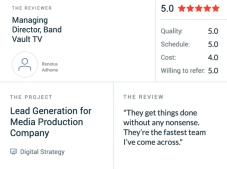Detailed Guide To Improving Your Sales Pitch & Closing Deals
Telemarketing is a powerful sales tool if executed well. However, it can also turn prospects off if it’s not done properly. You can use several key marketing strategies to sell more in telemarketing and win over the prospective customer.
If you are in telemarketing, your ultimate goal is to make sales. It’s not enough to have good communication skills and a convincing pitch; you also need to be strategic. Here are some tips on how to sell more in telemarketing:
Have A Script
In telemarketing, having a script is crucial if you want to sell more. A well-written script can guide your conversation with prospective customers and help you stay on track while highlighting your product or service’s key features and benefits. Without a script, you may stumble over your words, forget important details, or struggle to close the sale.
When creating a telemarketing script, keeping your target audience in mind is essential. Consider their needs, pain points, and interests so that you can tailor your message accordingly. You should also include open-ended questions in your script to encourage dialogue and build rapport with the person on the other end of the line.
Speak Slowly And Clearly
If you want to improve your telemarketing skills, one simple advice you should always keep in mind is to speak slowly and clearly. It may seem like a small detail, but it can make a huge difference in your ability to sell more effectively over the phone. Here are a few reasons why:
When you speak too quickly or mumble your words, it can be difficult for the person on the other end of the line to understand what you’re saying. This can lead to frustration and confusion, making them less likely to listen to what you say or consider your pitch.
Be Prepared To Have A Conversation
Many telemarketers often make the mistake of treating their calls as a monologue instead of engaging in a conversation with the prospect. This approach can be off-putting and cause potential customers to lose interest quickly.
You must be prepared to converse with your prospects to sell more in telemarketing. This means taking the time to research your leads’ interests, needs and pain points before picking up the phone. By doing so, you’ll be able to tailor your pitch accordingly and provide value that resonates with them.
Avoid The Worst Timings To Call
Timing is crucial in telemarketing. Knowing when to make that call can either make or break a sale. A well-timed call can be the difference between successful and unsuccessful sales.
One of the worst times for telemarketers is during meal times. Interrupting their meals with a sales pitch may lead to annoyance instead of interest in your product or service.
Another bad time for telemarketing is early morning or late at night. Calling too early in the morning or late at night can come across as intrusive and disrespectful of personal time, leading to a negative customer experience and ultimately hurting your business reputation.
Don’t Do All The Talking
Most often than not, telemarketers fall into the common pitfall of doing all the talking during a call. This counterproductive approach can turn off potential customers instead of convincing them to buy.
Balancing talking and listening to sell more in the marketing campaign is essential. Start by asking questions that will help you understand your prospect’s needs and wants better.
Listening attentively creates an atmosphere of trust and respect, making it easier for you to hold their attention throughout the call.
Always End A Call Politely
When you’re speaking with someone on the phone, it’s important to remember that they’ve given up their time to talk to you. They might not be interested in what you’re selling, but they’ve still taken the time to listen. By ending the call politely, you show your respect for their time and effort.
Another benefit of ending a call politely is that it leaves a good impression in the customer’s mind. Even if they’re not interested in buying anything right now, they may remember how courteous and professional you were when it comes time for them to purchase.
Persistence Is Key, Follow-Up!
Persistence is the key to success in this line of work. Follow up with your prospects after every sale calls to sell more effectively. Doing so increases your chances of closing deals and building lasting relationships with potential clients.
In today’s fast-paced world, people are busy and easily forgetful. Therefore, it is essential to have a system in place that reminds you to follow up with your leads regularly. Keep track of who you’ve spoken to, when, and any relevant information about their needs or preferences.
This way, when you make that follow-up call, you can personalise the conversation based on what they told you.
Conclusion
Selling over the phone can be a challenging task, especially when you are repeatedly met with rejection. But don’t worry; there are several effective ways to sell more in marketing campaigns. These best practices for selling over the phone have been discussed in this article.
Was this article helpful? Let us know in the comments.
FAQ
How do telemarketers get clients?
Telemarketers use targeted lists of potential clients interested in similar products or services. These lists are usually purchased from data providers or generated through market research.
Once they have identified the target audience, they start making calls using scripts designed to grab the prospect’s attention and persuade them to take action.
What are the skills of a telemarketer?
Good telemarketers should have excellent communication skills as they converse with strangers daily. They should be able to listen carefully to potential customer queries and respond promptly while keeping their tone friendly and professional.
What do you say about telemarketing?
Firstly, start with a friendly greeting that establishes trust and credibility. Introduce yourself and your company clearly, and ask how they’re doing. This helps create a positive first impression and sets the stage for further conversation.
Secondly, focus on building a relationship by asking open-ended questions about their needs or interests related to your product or service. Listen actively to their responses and offer relevant information or solutions based on their answers.
Thirdly, respect their time by keeping the call concise but informative.



















